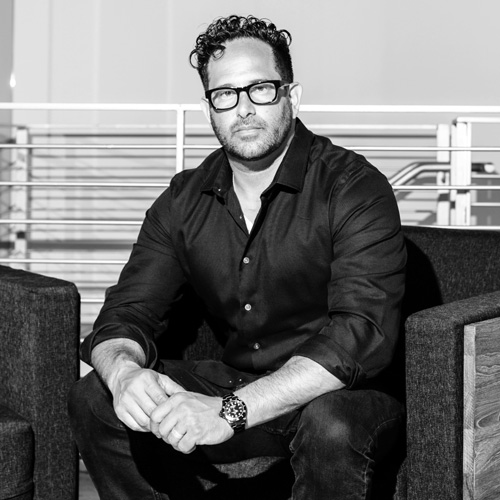The changes afoot at General Nutrition Centers—the retailer popularly known as GNC—are akin to how the maturing baby boomer population is aging. Boomers are, after all, the generation that invented jogging, widespread marathon participation, and health clubs. And as they enter the retirement years, this cohort that takes a proactive approach to health is also shifting its focus on vitamins and supplements to manage aches and pains and prolong their overall vitality.

GNC, based in Pittsburgh since its founding in 1935, has long catered to people’s interests in health and fitness. But Daisy Vanderlinde, the company’s chief human resources officer, explains that GNC had an employee culture that needed its own maturation and transformation.
Along with the new CEO Mike Archbold, Vanderlinde arrived at the company in 2014 at a time when retail and the nutrition-store industry were challenged. GNC has 8,500 stores, including about 3,035 owned by the company, almost an equal number in the United States run by franchisees, and more than 2,200 operated within Rite Aid drug stores. Franchised units are found in more than fifty countries, but the bulk of company-owned units are in the United States, Canada, and Puerto Rico.
This means that 600 corporate employees and the 16,000 store, manufacturing, and distribution associates are sometimes entrenched in their own ways of doing business. It certainly provides experience to the enterprise that Vanderlinde and others value, but long-standing associates and ways of doing business often need to evolve with the world and marketplace around them.
“The first thing we did upon taking our positions at GNC was gather long-term people with the company—some of them with up to forty years’ experience—and spend a day recalling the time periods, decisions made, and the reactions among the employees,” Vanderlinde says. “It was clear that elements of a leader’s decisions lasted long after the leader. I call it the ‘trailing impact.’”
Vanderlinde speaks of a current of conversation that exists throughout GNC and in most companies. It’s the impressions and ongoing discussion about what has happened in the past, what is happening, and what will happen as the company and its people go about their business. “Failure in new leadership happens when we’re unable to focus and help shape those currents of conversation,” she says. “Some things are very deep in the current.”
For example, employees were very functionally based, which sometimes impaired cross-departmental teamwork, according to Vanderlinde. Another challenge, common among well-established companies, was the perception that only a select group of people made key decisions. “The talents of our people were suppressed and underleveraged,” she says. “The concept that everyone can have an impact was not really alive.”
“It was clear that elements of a leader’s decisions lasted long after the leader. I call it the ‘trailing impact.’”
Vanderlinde’s understanding provided a basis for building a new way of working at the company. “Ideally, we aspire to be a listening culture, a place where people can work collaboratively,” she says. “Decisions can be shared by more people. We want to make it okay for people to try and sometimes fail—and to have more fun in the workplace.”
Vanderlinde notes that this is entirely consistent with the consumer offering that is at the core of what GNC does. “This is a business about helping people,” she says. “We want to inspire people to live well—like our motto. There should be a passion here for helping customers to feel better.”
The franchisees and store-based associates who interact with customers every day provide motivation for the corporate staff. “We get energy and inspiration from each other,” Vanderlinde says. “But our store associates really embrace health and wellness.” She adds that corporate associates have access to a company gym to embrace the look-good, feel-good nature of the business.
Pittsburgh employees are also learning more about their consumer offerings. “Over the last several months, we have ramped up product knowledge—including presentations about product biology and chemistry to enhance the engagement with our brand.”
As any consumer brand is smart to do, GNC also embraces diversity in the workforce. “Organizations that can tap into diverse perspectives will always benefit,” Vanderlinde says.
But when trying to establish a unified culture, do those diverse perspectives create conflict? “Individuals have to align with the company at some point,” she says. “Early adopters have a lot more ability to impact the organization. These people have a great attitude, are upbeat and positive, intellectually curious, and want to engage in change.”
Those qualities certainly contribute to the cultural transformation Vanderlinde works to create. The network of conversations between associates, franchisees, suppliers, and customers benefits when associates engage enthusiastically with the business at hand. “Culture is everything,” Vanderlinde says. “To quote business guru Peter Drucker, ‘Culture eats strategy for breakfast.’”
Perhaps with the right cultural supplementation—with people who listen and collaborate cross-functionally—business strategies can be just as compelling. It’s how a company entering its ninth decade continues to claim its vitality.

